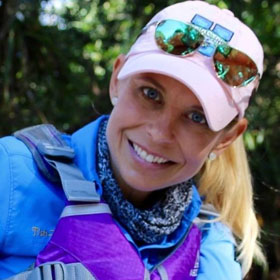Natural Resources: 5 Things to Know About Water Conservation
By Debbie Hanson
Jul 15, 2020
Water might seem to be the most renewable of our natural resources because it falls from the sky as rain, surrounds us in our oceans, and exists in polar ice caps and glaciers. However, since water is essential for most of our daily activities and for healthy aquatic environments, we need to be particularly aware of how to conserve it.
We use water for drinking, washing, growing crops, as well as for construction and manufacturing. With 7.5 billion people on our planet, and a population that is projected to reach almost 10 billion by 2050, the conservation of natural resources will become increasingly important.
How can you help conserve our water natural resources? Learn and take action on policies, strategies, and activities that help to sustainably manage our aquatic resources.
Here are five things you should know about water natural resources and associated conservation efforts:
These five important points can make a big difference when it comes to protecting our natural resources and water conservation efforts. Get involved, practice water conservation at home, and spread the word.
- Consider the availability of water where the withdrawal of the resource does not exceed its natural replacement rate. In other words, can you prepare a presentation for a local civic organization to help your community understand specific steps they can take to conserve natural resources? For example, fix leaky toilets and faucets, water lawns in the evening or early morning hours, and asking your local car wash businesses if they recycle water instead of letting it run down the sewer drains.
- Remember that many fertilizers and pesticides that are used outdoors may contain hazardous chemicals. These chemicals can travel through the soil, contaminate groundwater, and seep into our aquatic ecosystems. Research and use non-hazardous alternatives whenever possible. If you must use these chemicals, use them in moderation.
- Get involved in fish and wildlife conservation efforts that help to educate the community on how to preserve and protect freshwater habitats for local wildlife, in addition to improving overall water quality. For example, Florida Fish and Wildlife Conservation Commission's Aquatic Habitat Conservation and Restoration Section works on restoring Florida’s freshwater, marine and estuarine habitats, and welcomes the participation of volunteers.
- Practice habits that reduce energy use. Carbon dioxide from the use of fossil fuels can make our oceans more acidic. Over the long term, this can contribute to the loss of coral reefs (coral calcium skeletons can be weakened by increasing acidity levels). Make an effort to reduce your carbon footprint by riding a bike, using public transportation, and turning off appliances in your home when not in use.
- Educate yourself on water conservation issues and practice your right to vote. Electing the right public officials is essential to good water conservation policies. Do your research so that you can make an informed decision. If you have concerns or questions about these policies, contact your state representative.
These five important points can make a big difference when it comes to protecting our natural resources and water conservation efforts. Get involved, practice water conservation at home, and spread the word.









